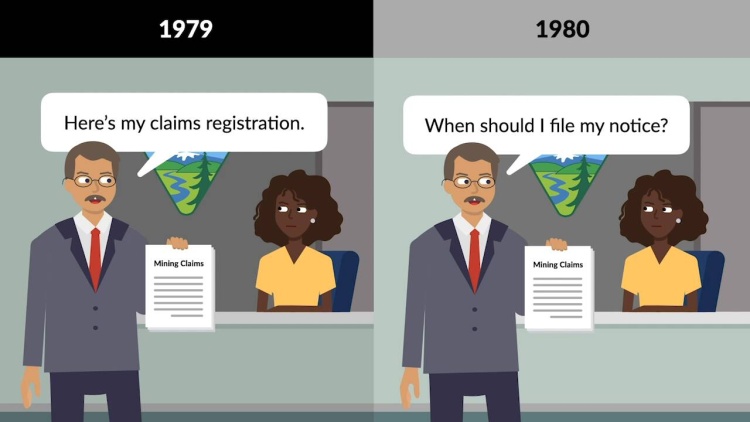United States v. Locke
United States Supreme Court
471 U.S. 84 (1985)
- Written by Melanie Moultry, JD
Facts
Section 314 of the Federal Land Policy and Management Act of 1976 (FLPMA), 43 U.S.C. §§ 1701 et seq., established a recording system for mining on federal land. The system was designed to eliminate stale mining claims and give federal land managers up-to-date information for making informed land-management decisions. Section 314(a) imposed two requirements for mining claims located prior to FLPMA’s enactment: (1) registration with the Bureau of Land Management (BLM) within three years of FLPMA’s enactment, and (2) submission of an annual filing to the BLM “prior to December 31,” along with notice of intent to hold a claim and either an affidavit of assessment work or a detailed reporting form. Section 314(c) provided that a failure to comply with these registration and filing requirements would constitute abandonment of the mining claim. In 1960 and 1966, four mining-property operators (plaintiffs) purchased unpatented mining claims in Nevada. The claims were located in 1952 and 1954 and were valued at several million dollars. Although the plaintiffs complied with FLPMA’s registration requirement, they submitted their filing one day late, on December 31. The plaintiffs claimed to have received misleading information from a BLM employee. However, the BLM determined that the claims were abandoned and void due to the plaintiffs’ late filing. The plaintiffs filed a complaint against the federal government (government) (defendant), claiming a taking and denial of due process. The district court entered summary judgment for the plaintiffs, finding that they had substantially complied with the filing requirement. The United States Supreme Court noted probable jurisdiction.
Rule of Law
Issue
Holding and Reasoning (Marshall, J.)
Concurrence (O’Connor, J.)
Dissent (Powell, J.)
Dissent (Stevens, J.)
What to do next…
Here's why 907,000 law students have relied on our case briefs:
- Written by law professors and practitioners, not other law students. 47,100 briefs, keyed to 996 casebooks. Top-notch customer support.
- The right amount of information, includes the facts, issues, rule of law, holding and reasoning, and any concurrences and dissents.
- Access in your classes, works on your mobile and tablet. Massive library of related video lessons and high quality multiple-choice questions.
- Easy to use, uniform format for every case brief. Written in plain English, not in legalese. Our briefs summarize and simplify; they don’t just repeat the court’s language.





